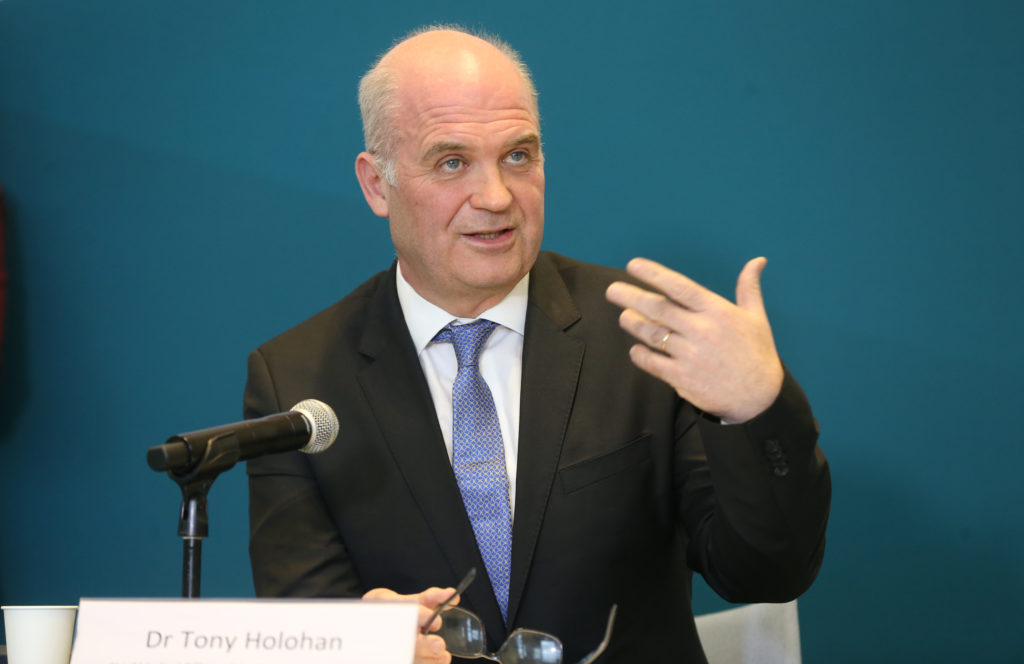IRISH CITIZENS have been asked to cancel any planned holidays abroad and instead holiday in Ireland in order to prevent a second wave of Covid-19 infections.
As Ireland enters Phase 3 of the reopening of the economy, with restaurants, hotels, B&Bs and some bars reopening and travel restrictions within the Republic eased, some people are becoming too compliant, the National Public Health Emergency Team have warned.
Chief Medical Officer Dr Tony Holohan, speaking at yesterday's press briefing where no deaths and 24 new cases of the virus were announced, said there had been a worrying rise in infections-- many of which are related to travel from abroad.
Six out of yesterday's 24 cases were in relation to travel from abroad, and there has been at least one 'cluster'-- three or more cases-- in the north west of the country, linked with travel to Iraq.
Much of Europe is opening its borders to visitors from 1 July, and Irish airline Ryanair are resuming 1000 flights a day on that date, but Dr Holohan yesterday pleaded with people to holiday in Ireland this year.
"We would like people not to travel," he told the press conference.
 Dr Tony Holohan, CMO, stressed that "mission has not been accomplished" and we must continue to abide by social distancing measures to eradicate the disease Photo: Sam Boal/RollingNews.ie
Dr Tony Holohan, CMO, stressed that "mission has not been accomplished" and we must continue to abide by social distancing measures to eradicate the disease Photo: Sam Boal/RollingNews.ie"Some people will have made bookings, and I think it makes much more sense to not go ahead with that booking than to risk travelling abroad and picking up this infection.
The reason for this is "the risks for you, for any family members who are travelling with you, or indeed any close contacts you would have when you come back, and then the risk that represents for us as a community and society."
Many popular tourist destinations have "ongoing challenges" in relation to Covid-19, with countries such as Croatia and Portugal in danger of a second wave, and Italy and Spain being two of the worst-hit countries in the world, although the rate of infection has dropped considerably.
Dr Ronan Glynn, Deputy Chief Medical Officer for the Department of Health, agreed with Dr Holohan and said travel abroad for leisure remained unsafe.
"Many countries around the world are still experiencing high and increasing levels of this disease. Last week, there were over 1.1 million cases reported and there have now been over 10 million cases reported globally to date.
"The risk of imported cases remains high. It’s important that we continue to avoid all unnecessary travel at this time."

